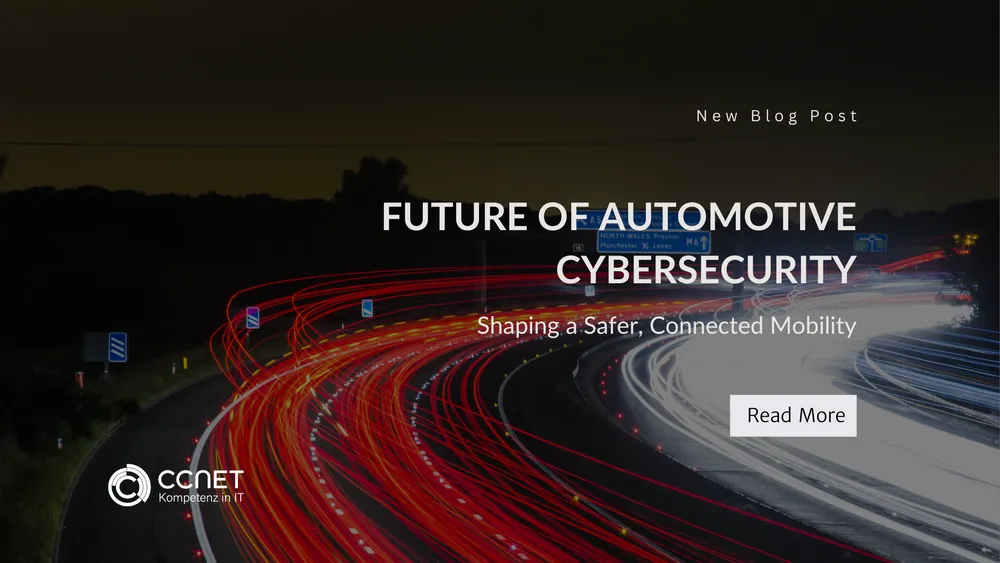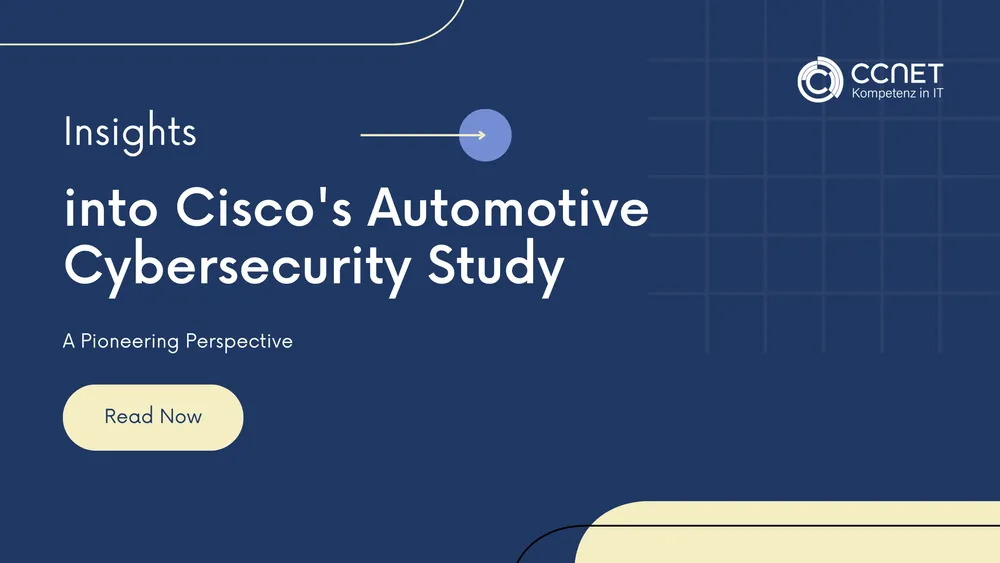
CCNet
Aug 21, 2024 • 2 min read

Security Culture in the Automotive Industry: A Competitive Advantage in the Era of Digitization
Digital transformations setting the pace, cybersecurity is increasingly in focus for the automotive industry. Cisco's Automotive Cybersecurity Study highlights the essential role of a strong security culture within organizations to tackle the rising cyber threats. This blog post sheds light on why a comprehensive security culture serves not only as a protective mechanism but also as a competitive advantage for automobile manufacturers and suppliers.
The Challenge: Cyber Threats in the Connected Automotive World
The digitization of the automotive industry brings numerous benefits, from enhanced safety systems to increased comfort for vehicle users. However, it also opens the doors to cyberattacks, which not only have the potential to steal sensitive data but also endanger the physical safety of occupants. Faced with these threats, it becomes clear that cybersecurity is a fundamental pillar for the success and sustainability of companies in the automotive industry.
Security Culture as the Foundation
A strong security culture goes beyond implementing technical security measures. It encompasses the awareness, attitudes, and behaviors of every individual within the company regarding cybersecurity. From management to workshop staff, everyone must understand their role in protecting against cyber threats. Such a culture not only promotes a safe working environment but also strengthens customers' and partners' trust in the brand.
Competitive Advantage through Trust
In an era where customers increasingly value data privacy and security, a strong commitment to cybersecurity can become a decisive competitive advantage. Customers are more likely to choose brands they can trust to keep their data secure and ensure the integrity of their connected vehicles. The Cisco study underscores that companies investing in a robust security culture and advanced cybersecurity measures are better positioned to succeed in the digital future of the automotive industry.
Promoting the Security Culture
Promoting a strong security culture requires ongoing efforts at all levels of the company. This includes regularly training employees on the latest cyber threats and security practices, establishing clear guidelines and procedures for cybersecurity, and creating an environment where security concerns can be openly addressed and promptly dealt with. Leadership plays a crucial role by declaring cybersecurity a top priority and serving as role models for security-conscious behavior.
Collaboration as the Key to Success
The automotive industry is a complex network of manufacturers, suppliers, dealers, and service providers. Strengthening cybersecurity requires industry-wide collaboration to develop common standards and exchange best practices. Through collaboration, companies can not only enhance their own cyber defense capabilities but also contribute to protecting the entire automotive industry.
Conclusion
Cybersecurity poses one of the greatest challenges for the automotive industry in the 21st century. A strong security culture is key not only to addressing these threats but also to gaining and maintaining customers' trust. Companies that understand and promote cybersecurity as an integral part of their brand identity secure a decisive competitive advantage in an increasingly interconnected world. Cisco's Automotive Cybersecurity Study provides valuable insights and highlights that the future of the automotive industry depends not only on innovations but also on a deeply ingrained security culture.


